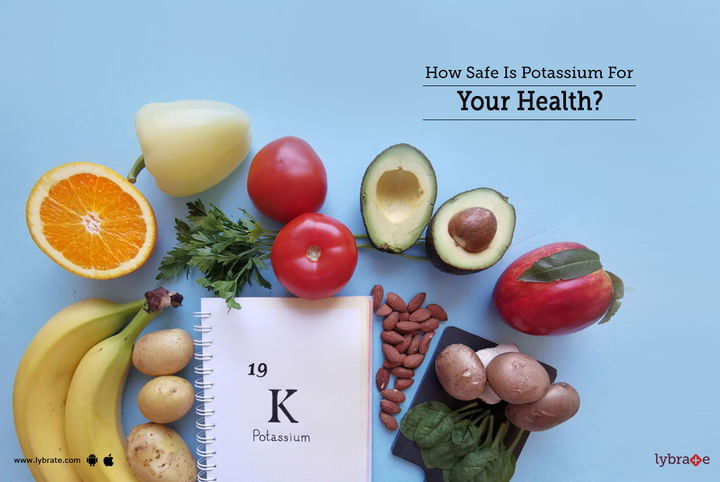How Safe Is Potassium For Your Health?
Potassium is one of the seven essential macrominerals found in a variety of foods, including legumes, fish, and leafy vegetables. The mineral plays a vital role in various body functions, such as regulating water balance, heart functioning, and muscle contractions.
Potassium deficiency can lead to weakness, fatigue, and constipation. It is therefore important that you include potassium-rich foods in your daily diet.
However, keep in mind that taking in more than the required amount of potassium can do more harm than good to your body.
How Much Should You Take In and Why?
As per the World Health Organization, the recommended daily intake of potassium for adults is between 3500mg and 4700mg, as it is safe to consume. When taken in recommended measures, a potassium-rich diet can have some impressive benefits on your overall health. It may reduce or prevent a host of health problems.
-
Lower high blood pressure
-
Helps eliminate salt insensitivity
-
Reduces your chances of getting a stroke by 7%
-
Helps prevent osteoporosis and minimizes the risk of bone fractures
-
Alleviates the risk of kidney stones
Natural foods are the best source of this mineral. However, you may also turn to supplements, as per your healthcare provider’s recommendation.
How Much Is Too Much?
Despite its health benefits, potassium should be consumed within the prescribed limit. Going overboard can cause excess potassium to be stored in your blood, and your kidneys may not be able to filter the excess amount – this condition could possibly lead to hyperkalemia. If your potassium levels are between 5.1mmol/L and 6.0mmol/L, you might be at risk of hyperkalemia. Higher than 6.0mmol/L level is considered dangerous – you will need to monitor and manage the condition in order to avoid the risk.
Potassium is essential for bodily functions. A healthy diet and overall eating patterns are important for maintaining good health and keeping illnesses at bay. Be sure to meet your recommended daily intake and avoid exceeding 4700mg of potassium daily. If you are looking to include supplements, talk to your doctor and make sure you stick to the prescribed dosage.


+1.svg)
